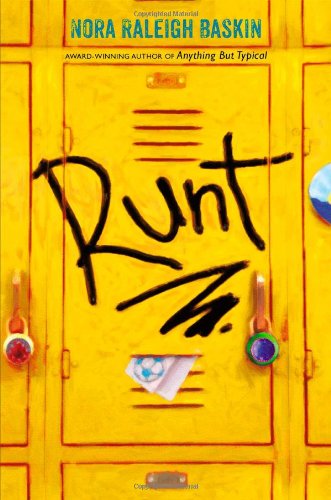About this item
An insightful exploration of middle school bullying from multiple perspectives, by the award-winning author of Anything But Typical.Elizabeth Moon grew up around dogs. Her mom runs a boarding kennel out of their home, so she’s seen how dogs behave to determine pack order. Her experience in middle school is uncomfortably similar. Maggie hates how Elizabeth acts so much better than everyone else. Besides, she’s always covered in dog hair. And she smells. So Maggie creates a fake profile on a popular social networking site to teach Elizabeth a lesson. What makes a bully, and what makes a victim? It’s all in the perspective, and the dynamics shift. From sibling rivalries to mean girl antics, the varying points of view in this illuminating novel from the award-winning author of Anything But Typical show the many shades of gray—because middle school is anything but black and white.
About the Author
Nora Raleigh Baskin
Truth- I started writing seriously in 5th grade. I began with poetry. All I remember about my first poem, was that it had something to do with reincarnation. It was short but startlingly profound (so I thought) . But what I remember most was my teacher's reaction. She loved it. My life was changed. I had discovered the power of words. By 6th grade I was writing short stories and keeping journals. I read constantly and my early writing was always influenced by what I was reading. At one point I became interested in Helen Keller and Annie Sullivan. I wrote a short story, in first person, about a blind and deaf girl struggling to express her thoughts. By high school I had attempted my first short novel, weaving my life into the events of World War II. I was a Jewish girl escaping Nazi Germany after my mother's death and searching for mymissing father. Writing was my way of articulating all the emotions and all the drama I found myself exploring during those years. Even my senior thesis in college was a jumble of feelings and experimentalwriting based on my life experiences. It was, of course extremely terrible. I think I was trying to make sense of all the confusion and unanswered questions. And I believed I could find some kind of truth if I put it down on paper. I was young, and I believed inwords- as my father would say. Now, I'm not so young (not as young) but I still believe in words.However, it did take me a long time to realize that truth is only the way you remember it. It is all in the interpretation. I realized that my truth was mine to manipulate. And I began to write fiction. I was finally able to care more about the story than the facts. Take what you need and what you want and let go of everything else.And the amazing thing was when I did just that , I was free. I was free from the burden of my own history. I was free as a writer to create. To write.
Report incorrect product information.


